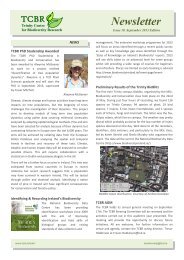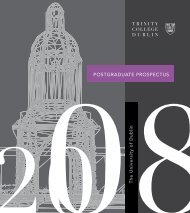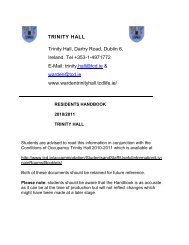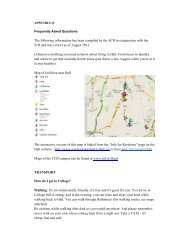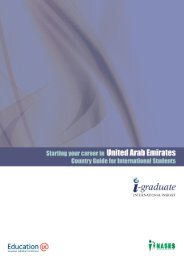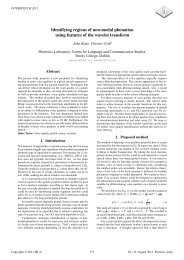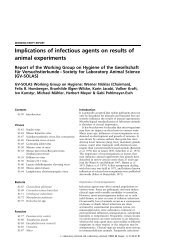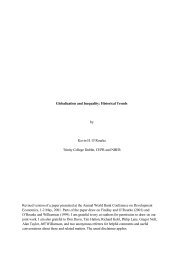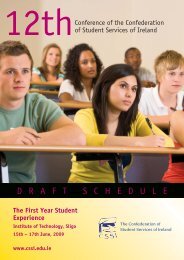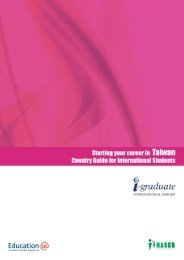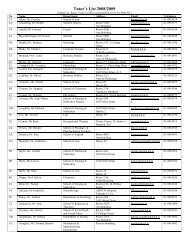Conference Programme (PDF, 1019KB) - Trinity College Dublin
Conference Programme (PDF, 1019KB) - Trinity College Dublin
Conference Programme (PDF, 1019KB) - Trinity College Dublin
You also want an ePaper? Increase the reach of your titles
YUMPU automatically turns print PDFs into web optimized ePapers that Google loves.
abstracts by stream and session<br />
I focus on the case of Spanish immigrant organisations to build a comprehensive analytical framework that can help us to understand<br />
the interplay between state intervention, ecological dynamics amongst organisations and the development of social capital among<br />
immigrants themselves. In doing so, I draw on several sources, especially a set of elite interviews with leaders of immigrant<br />
organisations, as well as on the contributions of the literature on social movements, on ethnic mobilisation and on social capital. It is<br />
shown that, in the Spanish case, the relationships between immigrant organisations and public powers are not balanced by a dense interorganisational<br />
network, nor are they harmonised by an active participation of their members, to the detriment of a true civil society in this<br />
domain. All this has negative implications for the associations’ capacity to act as creators of social capital and to integrate immigrants,<br />
which eventually questions the adequacy of strong public support of immigrant organisations.<br />
Integration from below: A historical analysis of migrant-led organisations in Ireland<br />
Ronit Lentin, <strong>Trinity</strong> <strong>College</strong> <strong>Dublin</strong>, Ireland<br />
This paper discusses migrants’ responses to settlement and integration policies in their new Irish destination. One response has been<br />
the creation of migrant-led organisations and networks, the subject of the <strong>Trinity</strong> Immigration Initiative Migrant Networks Project (www.<br />
tcd.ie/immigration/networks/). The paper critically evaluates the short history of migrant-led networks in the Irish context by examining<br />
several such organisations theoretically and empirically.<br />
Following the three-pronged trajectory used to analyse migrant women’s networks (Dr Tona and Lentin, forthcoming), this paper<br />
historicises the development of migrant-led organisations in Ireland along three developmental stages, paralleling the transformation of<br />
Ireland’s migration regime. It suggests that while the first stage in the development of migrant-led associations denoted the spontaneous<br />
establishment of networks and organisations in response to the vagaries of migration, the second stage was one of cooptation and<br />
inclusion, in which the state and the NGO sector united in supporting, but also appropriating migrants’ independent voices.<br />
After a theoretical discussion of migrant-led organisations, representation and resistance, building on Fanon’s notion of ‘lived experience’<br />
as the basis for antiracism, the paper looks at the history of migrant-led organisations in Ireland, using four examples of migrant-led<br />
organisations and campaigns, ARASI – the Association of Refugees and Asylum Seekers in Ireland, the Irish Association of Minority Ethnic<br />
Women (IAMEW), AkiDwA – the African and Migrant Women’s Network, and the Coalition against Deportation of Irish Children (CADIC).<br />
With the recession, the third stage in the development of migrant-led organisations in Ireland – competing for scarce funding with Irish<br />
NGOs – illustrates, as Kensika Monshengwo expressed it, that Irish migrant support NGOs are reverting to a colonial charity model of<br />
‘I know better than you what you want’ resulting in the demise of a migrant-led antiracism movement. However, based on interview<br />
data with leaders of migrant-led organisations operating in contemporary Ireland, this paper concludes by arguing that a new model of<br />
integration from below is developing, as migrants are actively working towards their own integration on their own terms.<br />
Overcoming Isolation and Exclusion: (New) Migrant Political Entrepreneurs’ Strategies and Practices<br />
Fidele Mutwarasibo, University <strong>College</strong> <strong>Dublin</strong>, Immigrant Council of Ireland & Africa Centre, Ireland<br />
Immigration is, without doubt, one of the most salient social transformations in Ireland in the last decade. A paradox of isolation<br />
and inclusion has been the hallmark of officials’ response to immigration. Many policies developed by officials in response to the<br />
unprecedented immigration experience resulted, in effect, in the exclusion and isolation of migrants. Asylum seekers’ dispersal and direct<br />
provision policies and the introduction of habitual residence condition in 2004 are some of the examples of exclusion of the migrants. The<br />
2004 citizenship referendum, initiated to ‘combat citizenship tourism’, in many ways, reified the non-‘Irish’ national category ascribed to<br />
migrants. In terms of inclusion, there were a number of initiatives including: Know-Racism, the National Action Plan Against Racism and<br />
the establishment of the Office of the Minister for Integration in 2007. Migrant political entrepreneurs have been developing responses to<br />
the paradox of inclusion and isolation. The visible forms of activism evolved from asylum seekers’ networks to home country associations;<br />
the third phase involved running for political office and campaigns for structural change. Based on biographical research, involving eight<br />
information rich case studies, undertaken between October 2005 and December 2008, this paper explores values underpinning changes<br />
in migrant political entrepreneurs’ strategies. Unlike traditional ethnopolitical entrepreneurs who engage in ethnic politics, (new) migrant<br />
political entrepreneurs are involved a continuum of conventional and infra-political activities aimed at promoting holistic inclusion.<br />
Humanness is at the heart of the philosophy of creative resistance that underpins their strategies and actions.<br />
SESSION 3a Migrant Networks from Formal to Informal<br />
The role of migrant networks in Spain: From vulnerability to the recognition of diversity<br />
Elisa Brey, Universidad Complutense de Madrid & Université de Liège, Spain & Belgium<br />
While the migration balance of Spain was positive until the middle of the eighties, nowadays immigration from other countries is one of<br />
the main factors of social change. Moreover, the number of migrants increased in a very short period of time, and the diversity of origins<br />
is relatively important due to globalization. Immigration brought new challenges to the Spanish society and its institutions, so migrants<br />
arrived in a new environment which was not necessarily prepared to face their demands, although it sometimes benefited from the<br />
experience of other European countries with a longer immigration history.<br />
34



